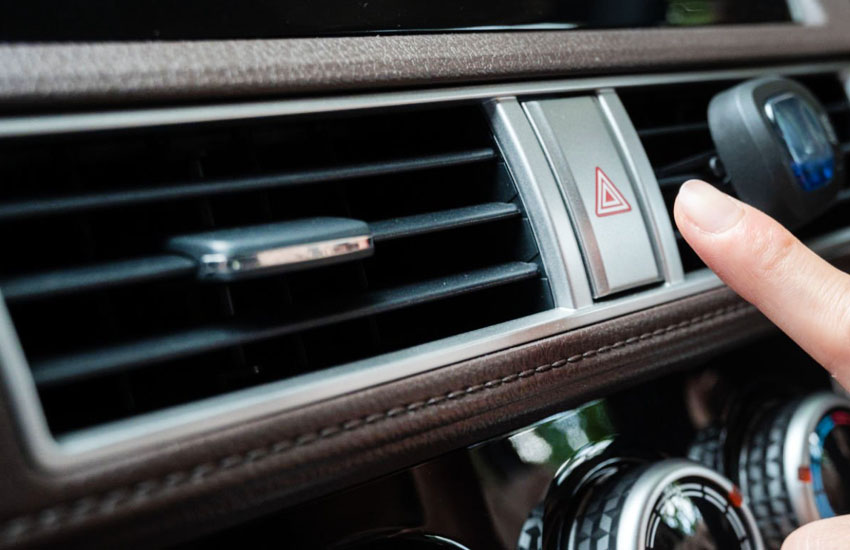When your car’s air conditioning system needs a recharge, just adding refrigerant might not be enough. The AC system requires a special type of oil to keep everything running smoothly.
In this article, we’ll explore why adding oil during an AC recharge is crucial for your car’s cooling performance. We’ll cover the role of oil in the AC system, how to determine if oil needs to be added, and the steps to safely add oil during a recharge.
Understanding this process will help you maintain your car’s AC system properly and ensure it keeps you cool during those hot summer drives. Let’s dive in and learn more about the importance of adding oil when recharging your car’s AC.

Importance Of Adding Oil When Recharging Car Ac
Adding oil when recharging a car AC is crucial to ensure proper lubrication of the system components. Oil plays a vital role in the AC system by helping to reduce friction, maintain the compressor, and prevent premature wear and tear. By neglecting to add oil during a recharge, you risk damaging the system and compromising its performance.
Purpose Of Oil In Car Ac System
Oil in the car AC system serves as a critical lubricant for the compressor and other moving parts. It helps maintain proper functionality and efficiency of the AC system by reducing friction and wear between components. Without sufficient oil, the AC system may experience issues such as overheating and compressor failure.
Signs That Oil Needs To Be Added
- Weak or warm air blowing from the vents
- Unusual noises coming from the AC system
- AC system not cooling as effectively as before
- Visible oil leaks around the compressor
Types Of Oil Used In Car Ac Systems
The oil in the AC system plays a crucial role in lubricating the compressor and ensuring the proper functioning of the entire system. Using the wrong type of oil can lead to inefficiencies and potential damage to your car’s AC system. In this section, we will explore the three main types of oils used in car AC systems: Mineral Oil, PAG Oil, and POE Oil.
Mineral Oil
Mineral oil, also known as naphthenic oil, is the traditional oil used in older car AC systems. It is derived from petroleum and has been used in AC systems for many years.
Mineral oil is compatible with the older R-12 refrigerant but is not suitable for newer systems that use R-134a refrigerant. Therefore, if your car AC system uses R-134a refrigerant, mineral oil should not be used as it may cause damage and lead to poor performance.
Pag Oil
Polyalkylene Glycol (PAG) oil is commonly used in car AC systems that use R-134a refrigerant. PAG oil is synthetic and offers better lubrication properties compared to mineral oil. It mixes well with R-134a refrigerant and helps improve the efficiency of the AC system.
PAG oil comes in different viscosity grades, so it is crucial to use the correct grade recommended by the AC system manufacturer. Using the wrong viscosity can result in inadequate lubrication and potential damage to the AC system.
Poe Oil
Polyolester (POE) oil is another synthetic oil used in car AC systems, particularly those that use HFO-1234yf refrigerant. POE oil has excellent lubrication properties, making it ideal for high-pressure systems.
It is compatible with HFO-1234yf refrigerant and ensures efficient and reliable operation of the AC system. Like PAG oil, POE oil also comes in different viscosity grades, and it is essential to use the recommended viscosity grade for your specific AC system.
Now that you understand the different types of oil used in car AC systems, you can make an informed decision when it comes to recharging your AC system. Remember to always consult the manufacturer’s recommendations and use the appropriate oil for your specific AC system and refrigerant. Using the right oil will help prolong the life of your car’s AC system and ensure optimal performance.
Procedure For Adding Oil When Recharging Car Ac
When recharging a car AC, it’s crucial to add the right type and amount of oil to ensure the system operates effectively. Here, we’ll outline the precise procedure for adding oil when recharging your car’s AC, including locating the low-pressure port, using the correct type of oil, and measuring and adding the oil.
Locating The Low-pressure Port
The low-pressure port on your car’s AC system is typically found on the larger of the two hoses coming from the AC compressor. It’s often located near the accumulator or receiver-drier. Consult your car’s manual or seek professional assistance if you’re unsure.
Using The Correct Type Of Oil
It’s essential to use the oil specified for your car’s AC system. Consult your vehicle manual or an automotive professional to determine the correct type and amount of oil that should be added during the recharge process.
Measuring And Adding The Oil
When adding oil to the AC system during a recharge, it’s crucial to measure the correct amount. Use a measuring cup or syringe to ensure the precise amount of oil is added, as overfilling can lead to system damage. Slowly add the oil to the system, following the manufacturer’s guidelines for the specific amount required.
Common Mistakes To Avoid When Adding Oil
When recharging your car’s AC system, adding oil is a critical step to ensure proper lubrication and performance. However, there are common mistakes to avoid when adding oil to the AC system that can lead to issues down the road. By being mindful of these potential pitfalls, you can ensure that your AC system functions optimally.
Overfilling The System
Overfilling the AC system with oil can lead to a range of issues, including decreased cooling efficiency and potential damage to the compressor. Excessive oil can disrupt the system’s ability to circulate refrigerant properly, leading to subpar performance. It’s crucial to follow manufacturer guidelines and use the correct amount of oil for your specific AC system to prevent overfilling.
Using The Wrong Type Of Oil
Using the incorrect type of oil in your AC system can have detrimental effects on its performance. Different AC systems require specific types of oil to ensure proper lubrication and compatibility with other components. Consult your vehicle’s manual or speak with a professional to determine the right type of oil for your specific AC system to avoid potential issues.
Importance Of Professional Help
When To Seek Professional Assistance
- Old or Leaking AC System: If your car’s AC system is old or experiencing leaks, it is advisable to seek professional assistance when adding oil during a recharge. Professionals can inspect the system for any potential leaks and resolve them before adding oil.
- Inadequate Cooling: If your car’s AC system is not providing sufficient cooling despite recharging, it indicates an underlying issue that requires professional attention. Seeking their help will ensure a thorough diagnosis and proper treatment.
- Unfamiliarity with AC Systems: If you are not familiar with the technicalities of the car’s AC system, it is best to leave the oil addition process to professionals. They have the knowledge and experience to handle the job correctly, minimizing the risk of mistakes.
- Preventive Maintenance: Even if your car’s AC system seems to be working fine, it is a good idea to seek professional assistance for oil addition during regular preventive maintenance. This proactive approach helps maintain the efficiency and longevity of the AC system.
Benefits Of Professional Oil Addition
There are several advantages of opting for professional oil addition when recharging a car’s AC system. These benefits include:
- Expertise and Experience: Professionals have extensive knowledge and experience in handling AC systems, ensuring that the oil addition process is done correctly and effectively.
- Correct Oil Usage: Professionals are well-versed in the specific lubrication requirements of different AC systems. They can select and use the appropriate oil for your car, preventing any issues that may arise from using the wrong oil.
- System Performance: Proper oil addition ensures optimal performance of the AC system. Professionals can accurately determine the required amount of oil, preventing over or under lubrication that can affect the system’s efficiency.
- Avoiding Damage: Incorrectly adding oil can lead to damage to the AC compressor or other components. By relying on professionals, you can avoid such risks and potential expensive repairs.
- Efficiency and Longevity: Professional oil addition helps extend the lifespan of your car’s AC system and ensures its continued efficiency in cooling the cabin, providing a comfortable driving experience.
Conclusion
Adding oil when recharging your car AC is an essential step to ensure proper functioning and longevity of the system. By following the manufacturer’s guidelines and using the right type of oil, you can prevent damage to critical components and optimize cooling performance.
Regular maintenance and inspection of your car AC system will help you stay comfortable on the road and avoid costly repairs. Stay informed and take care of your car’s AC to keep it running smoothly all year round.


